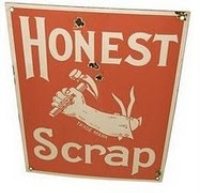I've written more than a hundred pages of my book, Obsessions of a Workaholic, and since it is a memoir, I obviously know how it's going to end. The novel I've been writing, on the other hand, is different because I've been trying to figure out the right way to end it.
One of my favorite movies is Alex and Emma, which is about a writer (Luke Wilson) struggling to write his second novel and the stenographer (Kate Hudson) transcribes the story for him after his laptop is broken. At the beginning of the movie, the stenographer, Emma, says that she decides whether or not to buy a book by reading the ending first because if she doesn't like the ending, she knows the book won't be worth reading.
I have to admit that I sometimes do the same thing when I'm browsing in a bookstore, especially when it's the book of an author I've never heard of. For example, I picked up a chick lit novel and skipped ahead to the ending, which was melodramatic and sad. There are some love stories, like Romeo and Juliet, where it's okay if the ending is tragic; if you think about it, Romeo and Juliet had to die, in order to show how destructive the feud between their families was. But the ending of that chick lit novel irritated me, especially because in most chick lit novels, the main guy and girl usually do end up together, and I knew I didn't want to read more than three hundred pages only to see both of them end up alone. I checked the Amazon reviews for that book, and judging by the angry reviews that dozens of readers posted, I could tell that I wasn't alone in this opinion.
On the other hand, sometimes knowing the ending of a story ahead of time ruins it for me. When I was in college, I read Anna Karenina for fun (I should also add that I liked reading the dictionary and thesaurus for fun because I really was and still am a big nerd). The book is almost nine hundred pages long, which is why it took me a long time to get through it. I had only read about seven hundred pages when a fellow English major, who saw that I was reading the book, spoiled the ending for me by telling me what happened to Anna Karenina (despite the fact that I was a well-read English major, I really didn't know). Of course, my reaction to that English major was basically this:
via GIPHY
Of course, I would have rephrased it like this: Hello. My name is Neurotic Workaholic. You spoiled the ending of a book that has taken me weeks to finish. Prepare to die.
But either way, the ending of a book is the most important of the story, in my opinion, because an ending can make or break a story. The story does not need to have a happy ending in order to be a good story, but it does need to be a satisfying one.
I read a novel recently that was written by someone I follow on Instagram. It had a very interesting, original premise, and there were parts of it that were very well-written. There was a love triangle in the book, where the female protagonist was torn between two men. But then all of a sudden a new guy popped up, and she inexplicably transferred the love she claimed to feel for one of the other guys for the new guy. Despite the narrator's insistence that the new guy was the "right" guy for her, it made no sense to me, considering that more than half the novel was about her love for one of the guys in the original triangle and all the risks she took to be with him. The story also ended in a very disappointing way, so that I responded by exclaiming, "That's IT? Are you KIDDING me?" I wanted to track down the author and say, "Hello. My name is Neurotic Workaholic. You wrote an unsatisfying and unrealistic ending to your novel. Prepare to be whapped in the face with your own book."
Of course, writers can end their stories however they want; they don't have to write endings that don't feel right to them just so it'll satisfy their readers. But when I read a story with an unsatisfying ending, it leaves me feeling frustrated and like I wasted time getting invested in characters who didn't get the ending they deserved.
It's also the reason why I struggle with writing the ending to my own stories because I want to make sure that they ring true. One way I do that is by writing several alternate endings; that way, I can figure out which one sounds best and which one makes the most sense for the characters. Of course, I can't do the same thing for the ending of my memoir because if I had the ending I really wanted, the book would conclude with me driving off into the sunset with a giant bag of money, a dog (I've always wanted to adopt my own dog), and my mortal enemies (yes, I have more than one) being dragged away to prison and/or hell.
What about you? Do you ever skip ahead to the ending of books? Do you struggle to write the ending of your own stories?
Give Me An A...Take Two!
-
[image: B]
ack in my first year of blogging, while procrastinating on writing, I
filled out an accident and injury related questionnaire.
I'm bringing it ...
7 hours ago







